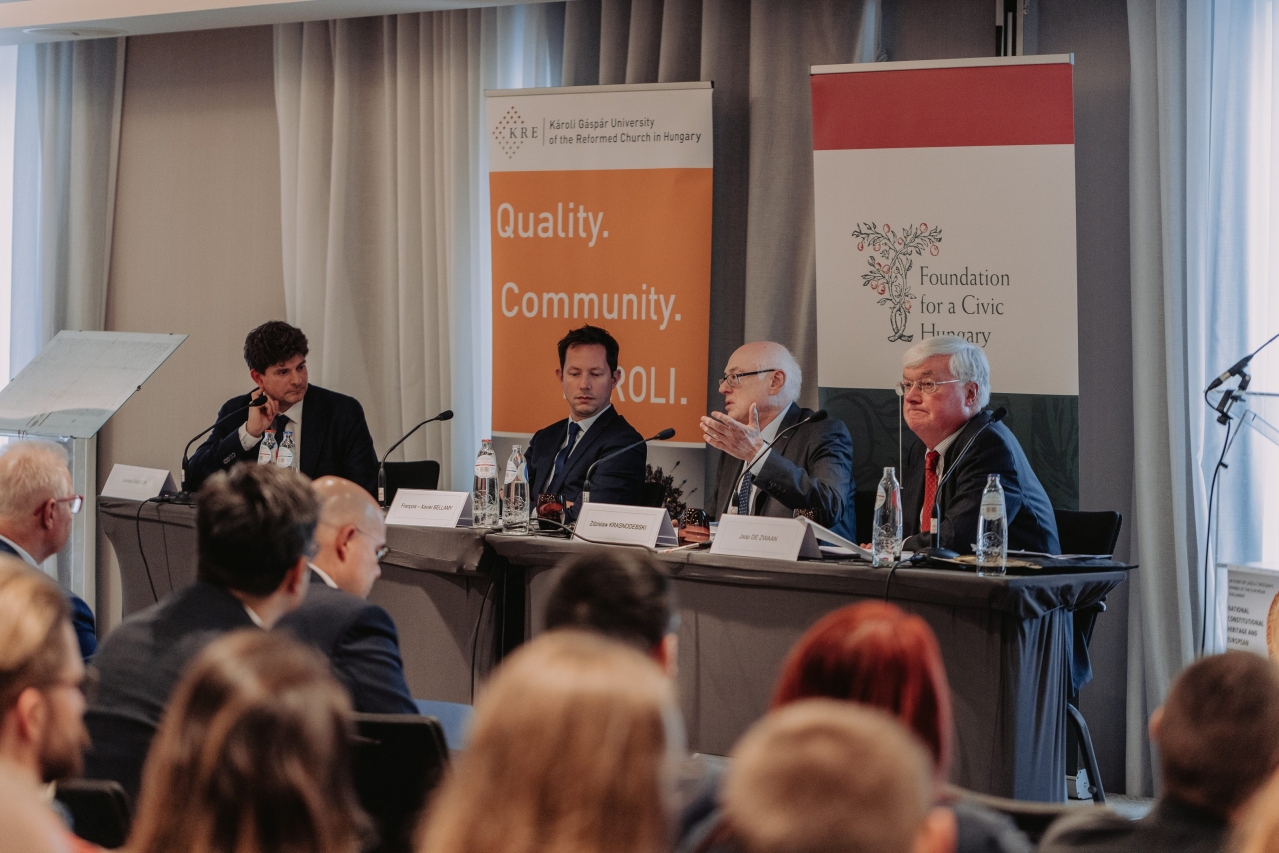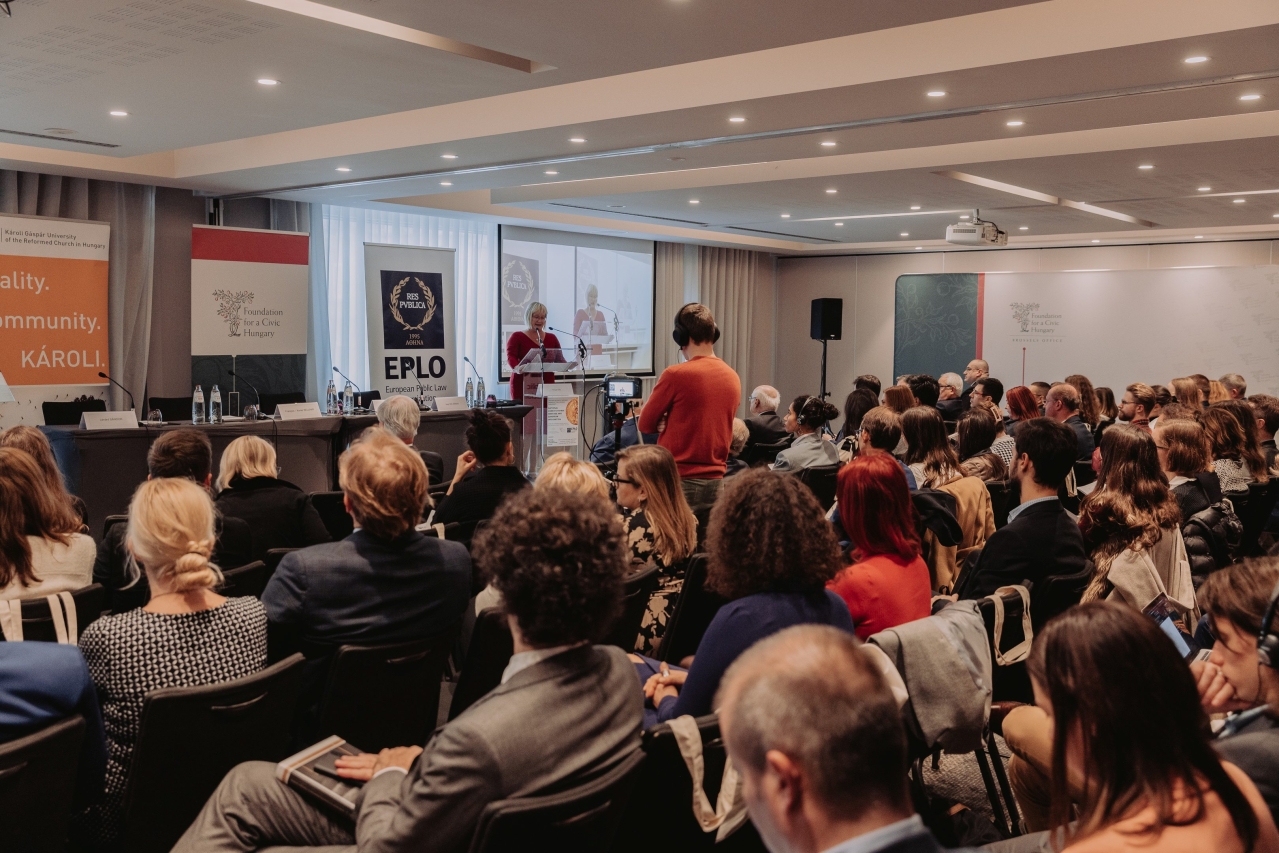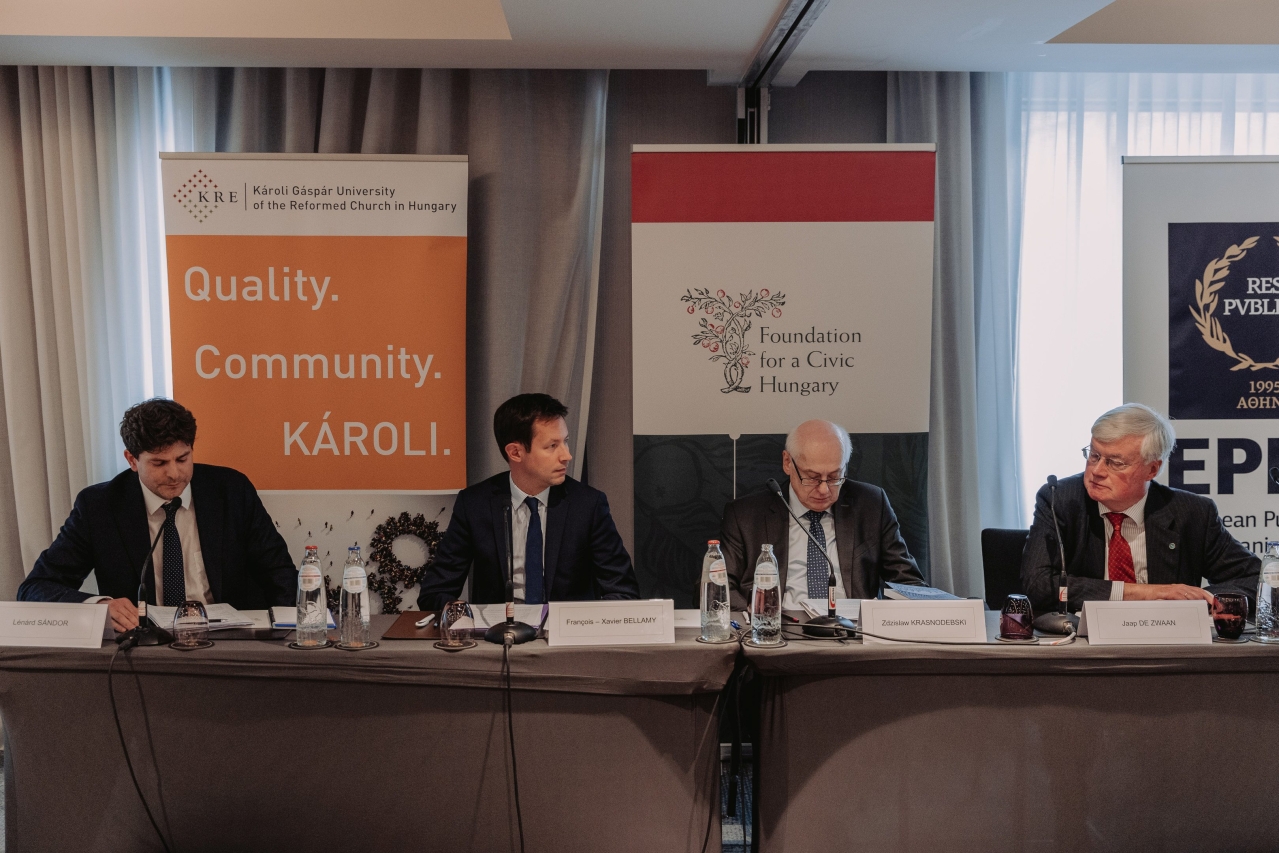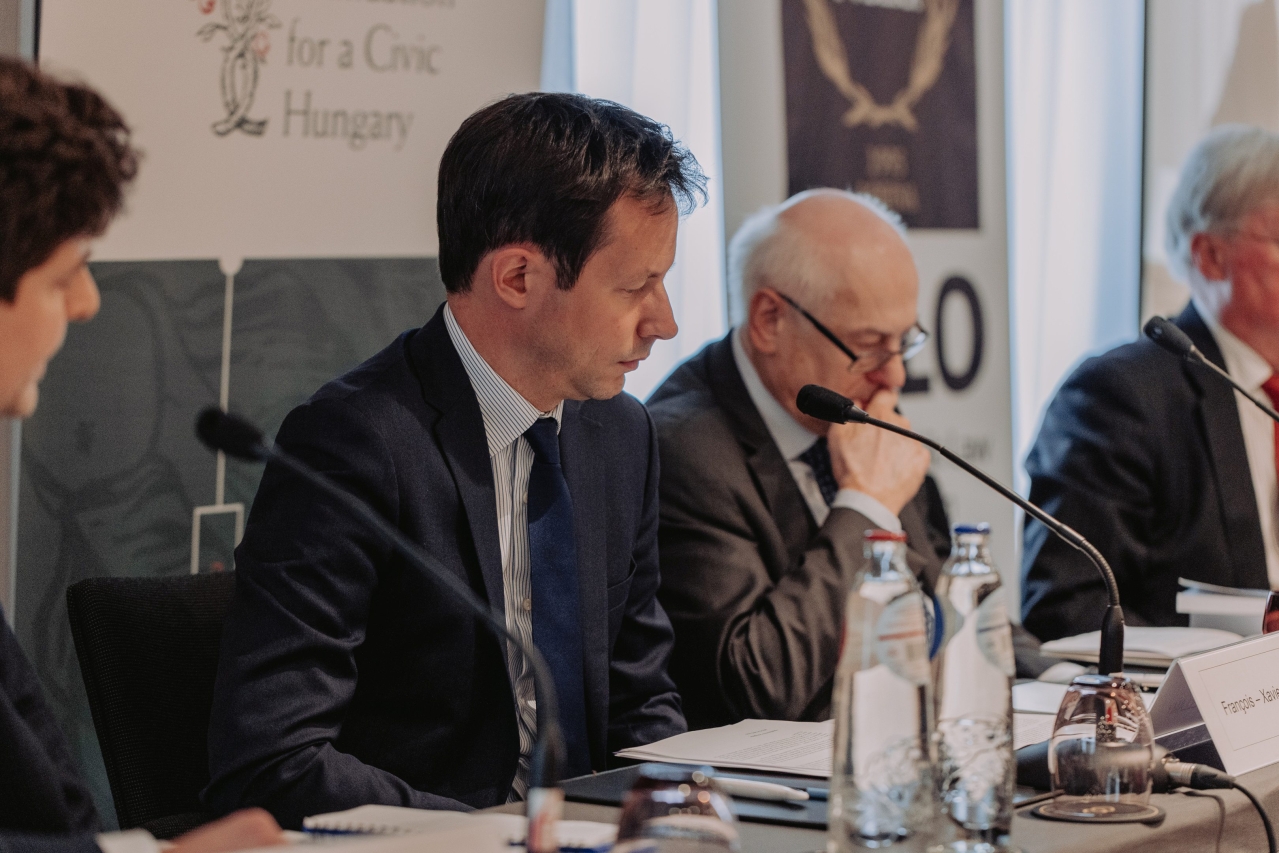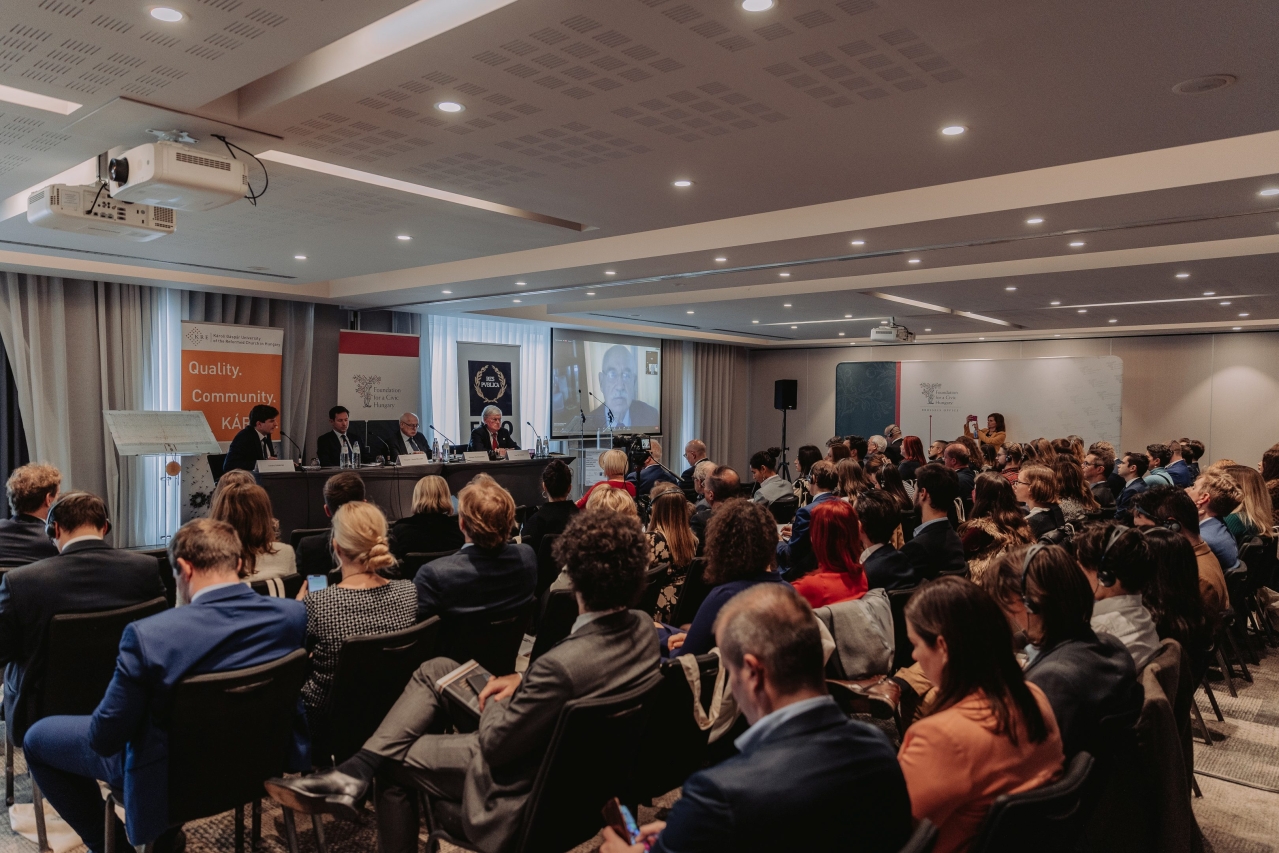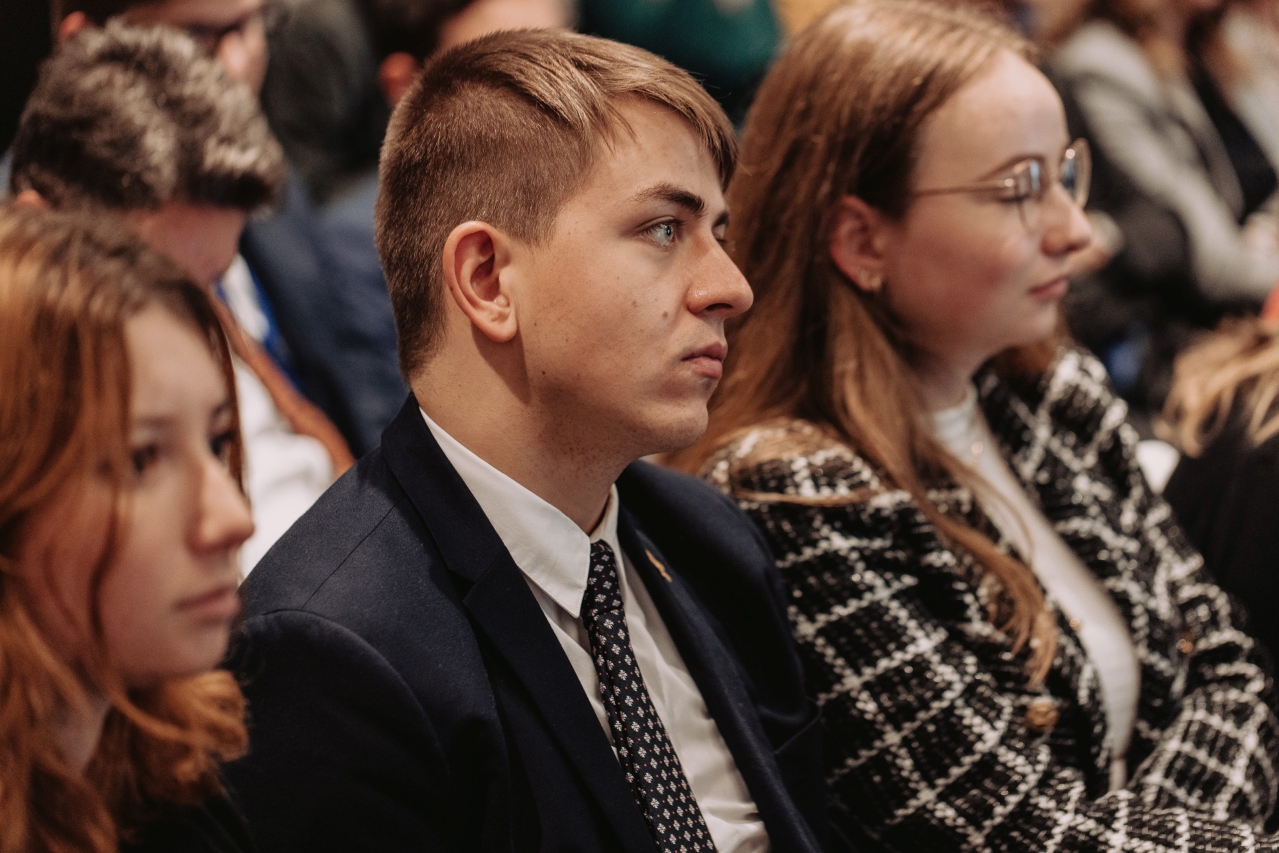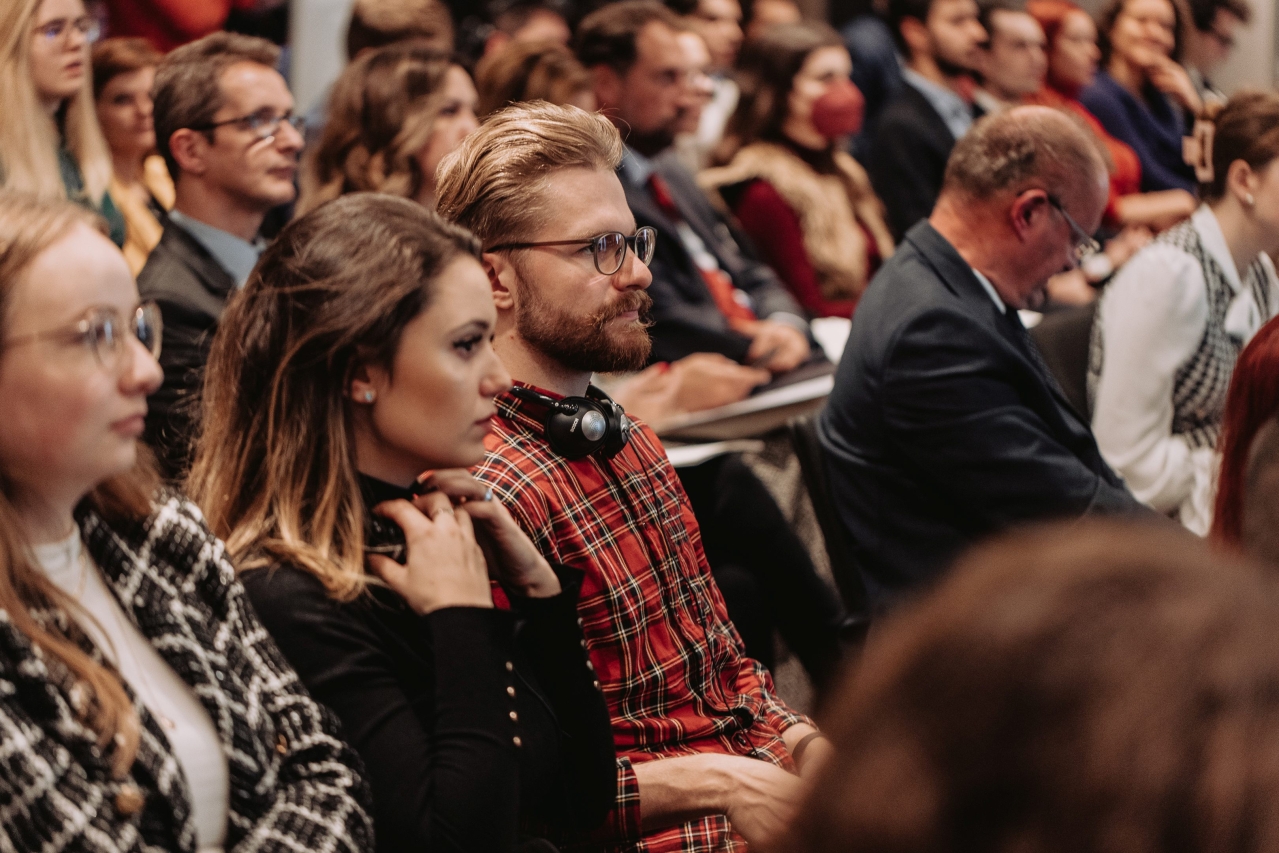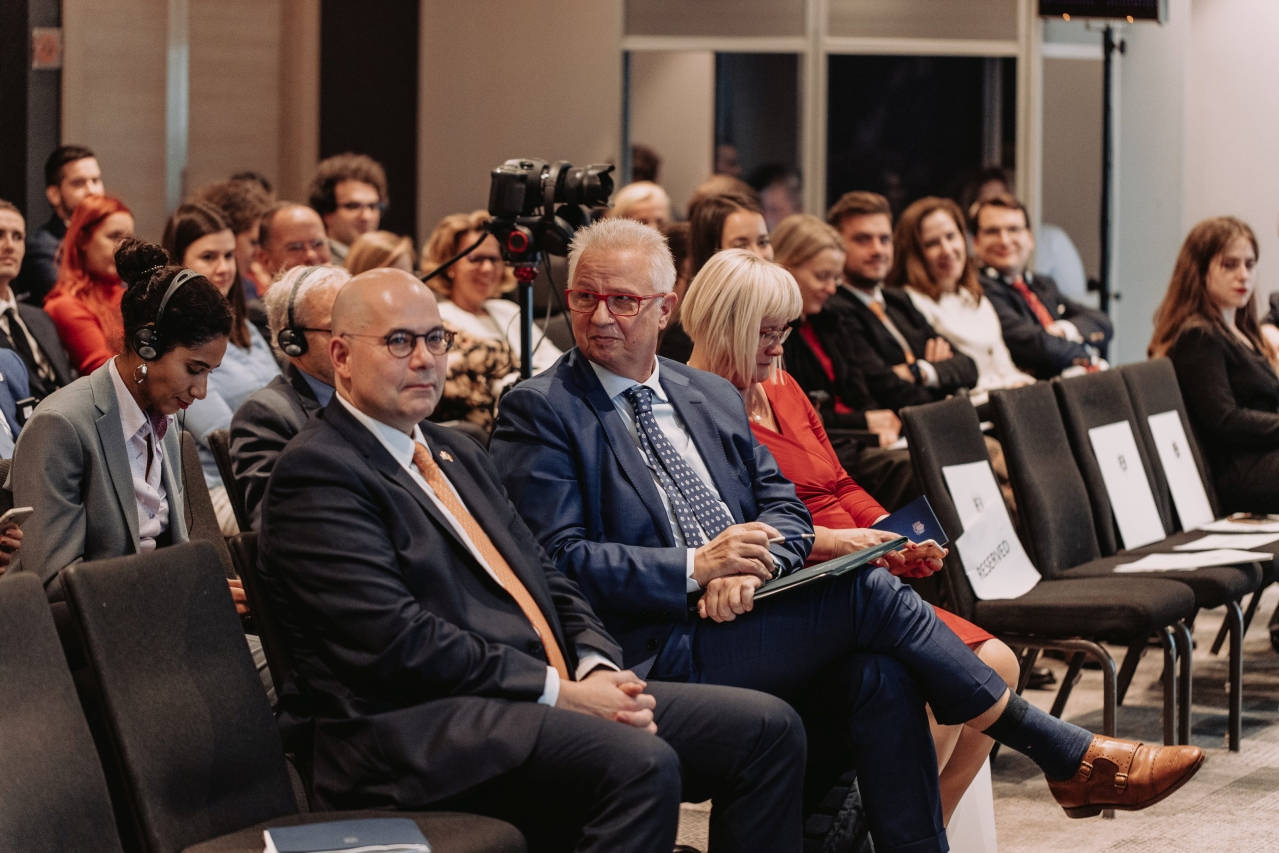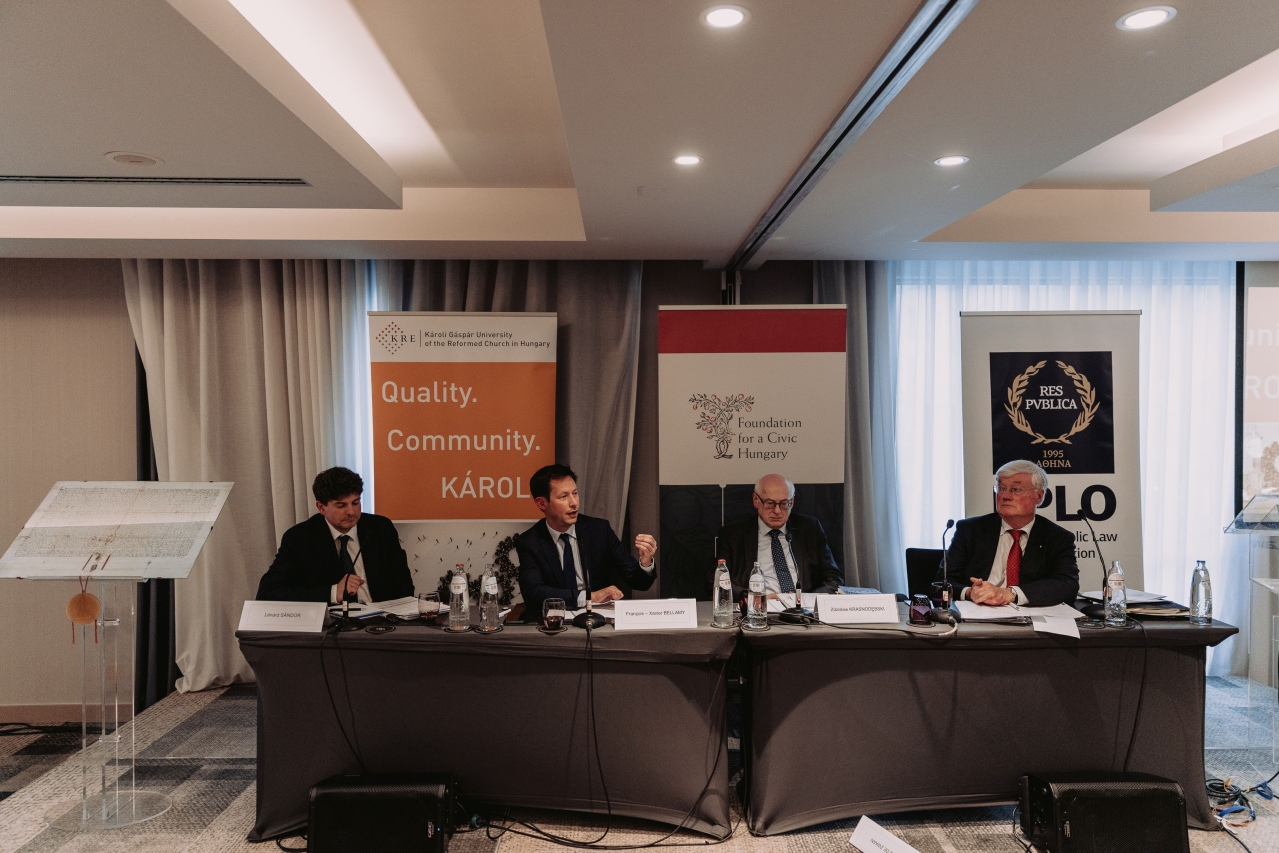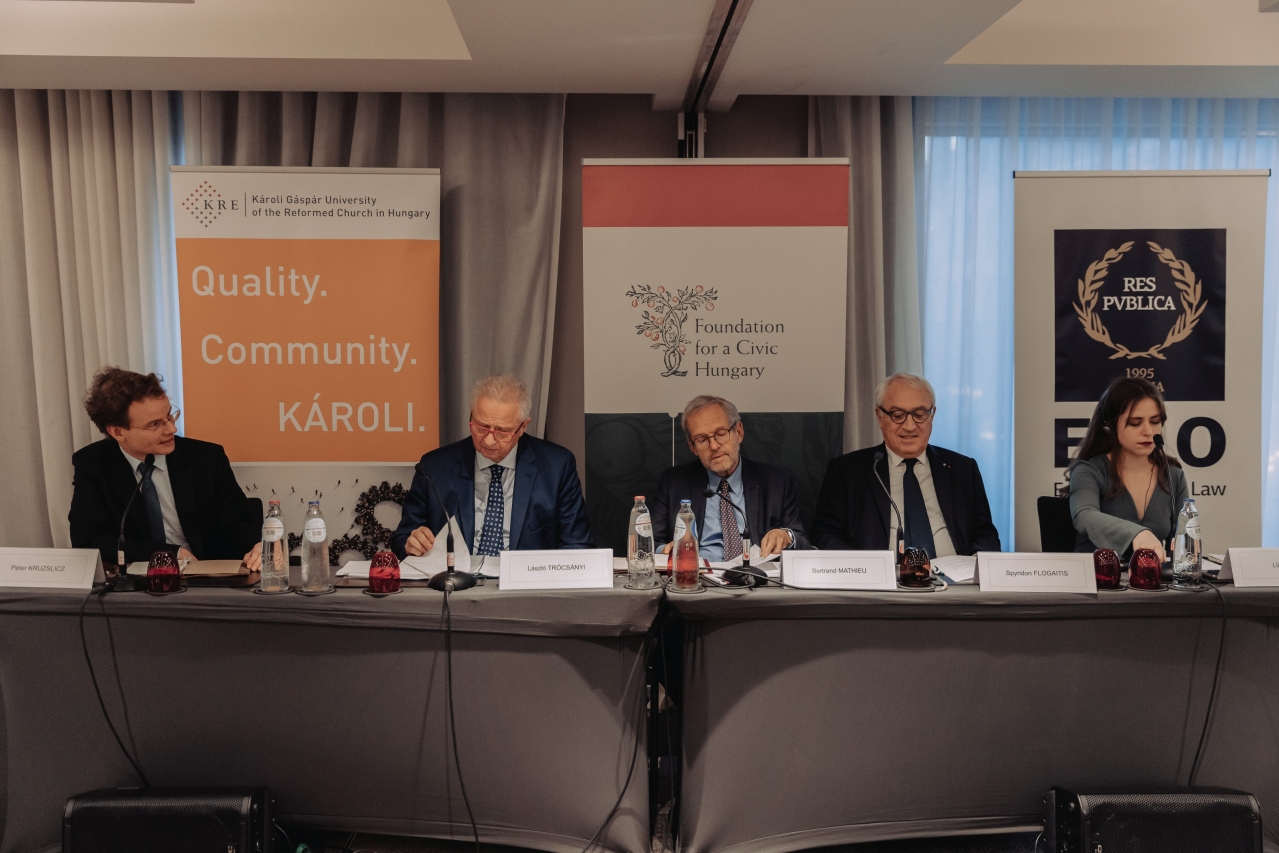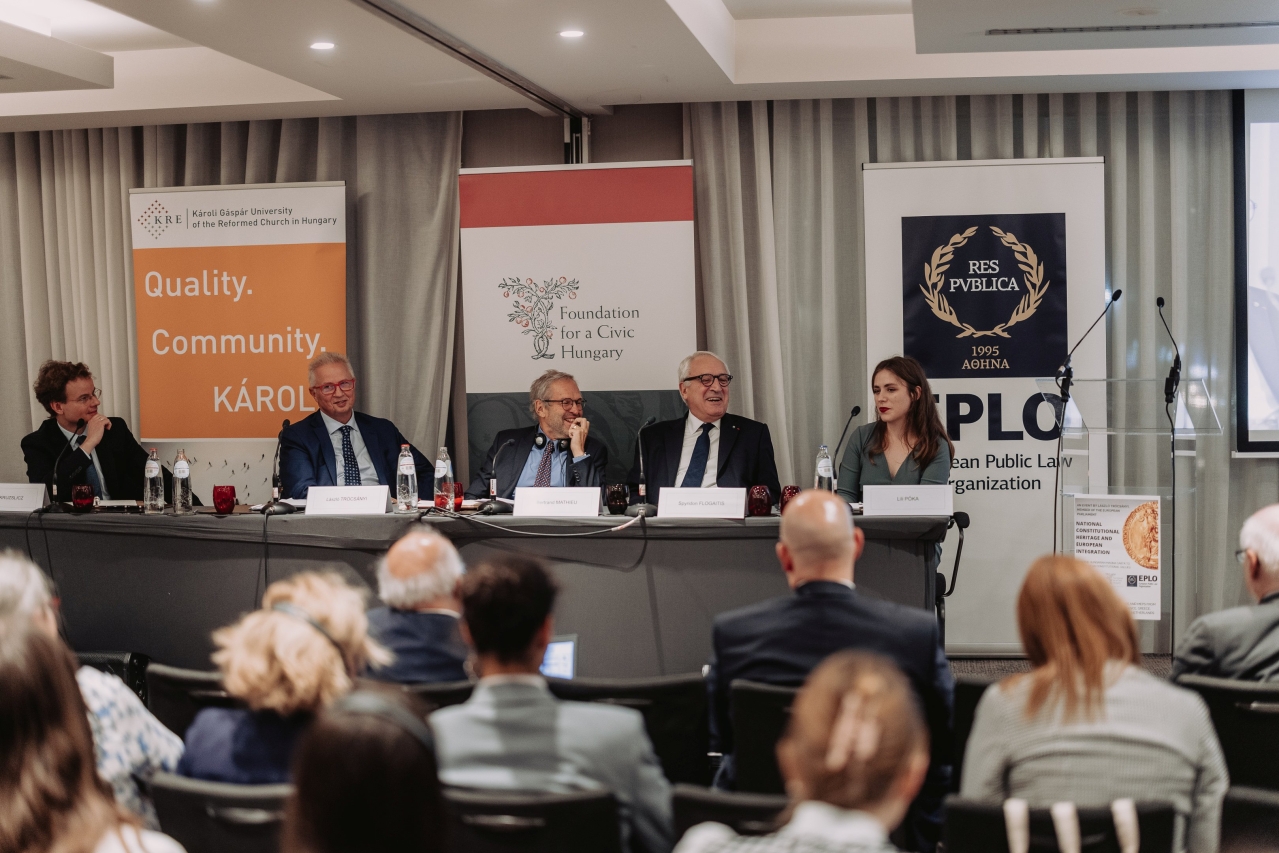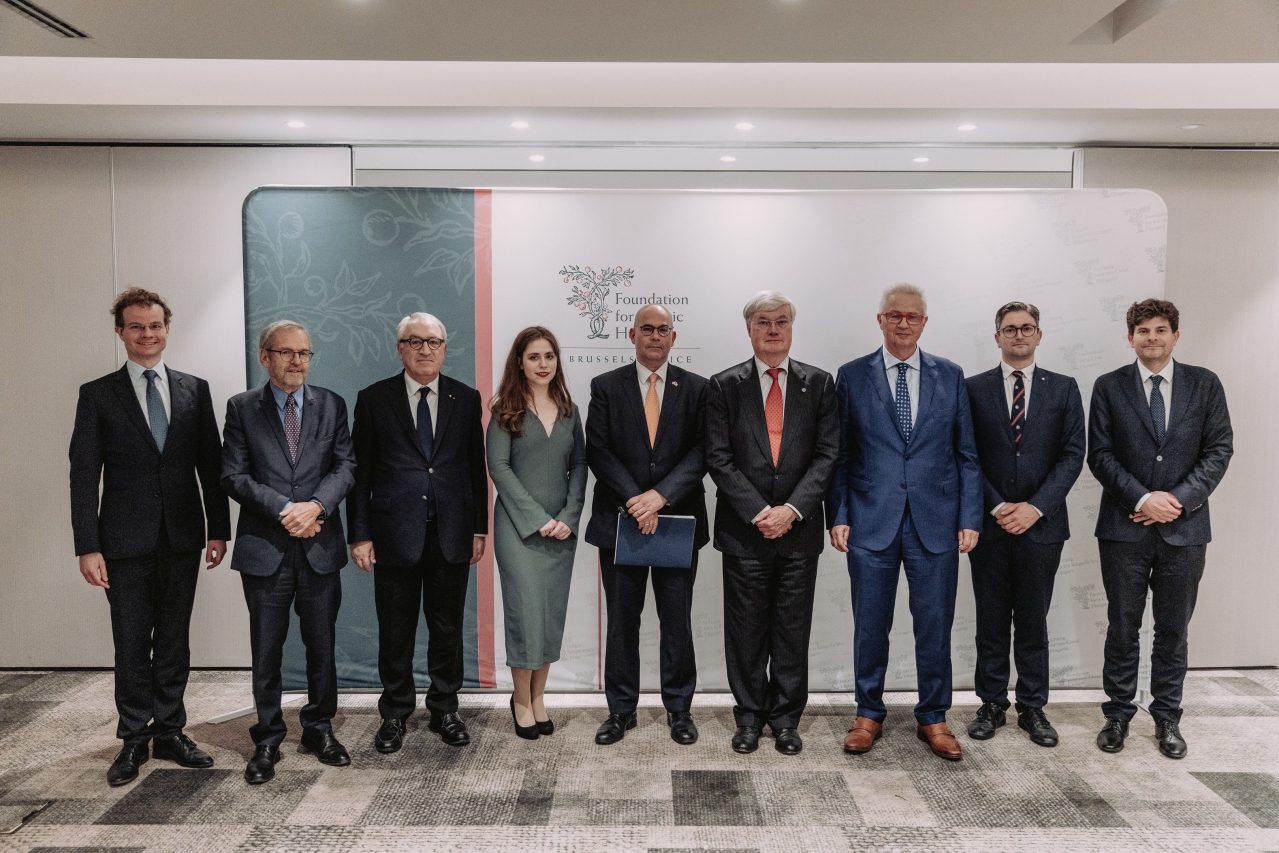Reading time: 3 minutes
The Mathias Corvinus Collegium was also given a role in the international conference organized in Brussels on the relationship between national constitutional heritage and European integration. The Head of Center for International Law at MCC, Lénárd Sándor moderated the panel discussion on civilizational heritage and a student of MCC, Lili Póka spoke at the panel discussion about the role of national constitutional heritage.
An international conference organized in Brussels commemorated the 800th anniversary of the adoption of the “Aranybulla,” the Hungarian Magna Charta Libertatum. Under the direction of Professor László Trócsányi and organized by the Károli Gáspár University of the Reformed Church, the Brussels Office for a Civic Hungary Foundation, and the European Public Law Organization, the scientific conference explored the important role of the national constitutional heritage in the European integration as well as in the dialogue on the future of Europe. Prominent academics, professors and leading European politicians shared their thoughts at the conference, which was held next to a sold-out house. The opening remarks were delivered by Dániel Szilágyi-Landeck Horogszegi, head of the Brussels Office for a Civic Hungary Foundation, and Kinga Gál, member of the European Parliament and President of the Fidesz delegation.
The first panel discussion aimed to explore the complex role the European civilizational heritage ought to play in the future of Europe. The discussion was moderated by Lénárd Sándor, Head of Center for International Law at the Mathias Corvinus Collegium and members of the panel included János Martonyi, Emeritus Professor of the University of Szeged and Former Minister of Foreign Affairs of Hungary, Jaap de Zwaan, Emeritus Professor of the Erasmus University in Rotterdam, Zdzisław Krasnodebski, Professor of the University of Bremen and Member of the European Parliament as well as François-Xavier Bellamy, professor of philosophy and Member of the European Parliament. The panel discussion sought to reveal the civilizational heritage that binds Europe together and should serve as a starting point for every discussion about the future of Europe. In contrast to the motto of the United States of America that is "out of many, one," the European cooperation is characterized by “unity in diversity,” which requires respect for each other’s traditions and cultures in addition to the recognition of the common intellectual and civilizational roots. In this context, the conversation also highlighted that individual countries joined the European integration in different historical contexts, and therefore they see the integration in different ways and from different perspectives and have different expectations. Only by showing openness and comprehending these differences can Europe remain united and build a common vision for the future.
The second panel discussion investigated the significance of the national constitutional heritage. The discussion was led by Péter Kruzslicz, assistant professor at the University of Szeged and members of the panel were László Trócsányi, Rector of the Károli Gáspár University of the Reformed Church and Member of the European Parliament, Bertrand Mathieu, professor at the Law School of the University Panthéon-Sorbonne, Spyridon Flogaitis, director of the European Public Law Organization, and Lili Póka, law student at Eötvös Lóránt University and MCC. The panel discussion explored that national constitutional developments have taken diverse paths, and this has influenced the framework of constitutionalism as well as the exercise of public power. While the constitutionalism of the Member States is weakening, a hidden constitutionalization has been taking place on the European level. Initially, European judicial forums were at the forefront of this general trend, but now they have been replaced by European institutions that do not actually have competences over this process. It would be important that politicians with sufficient democratic legitimacy conduct and chart the course of the dialogue about European constitutionalization.
The closing remarks of the conference were delivered by Tamás Iván Kovács, the Ambassador of Hungary in Brussels.
